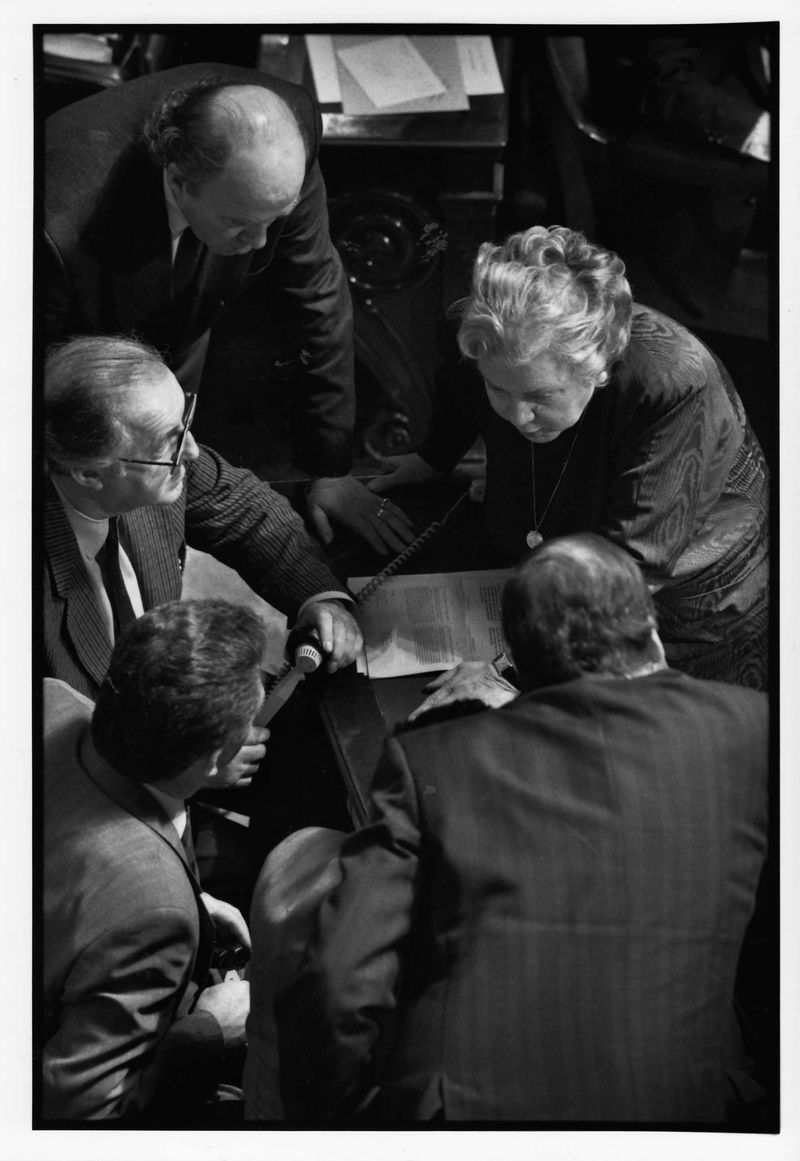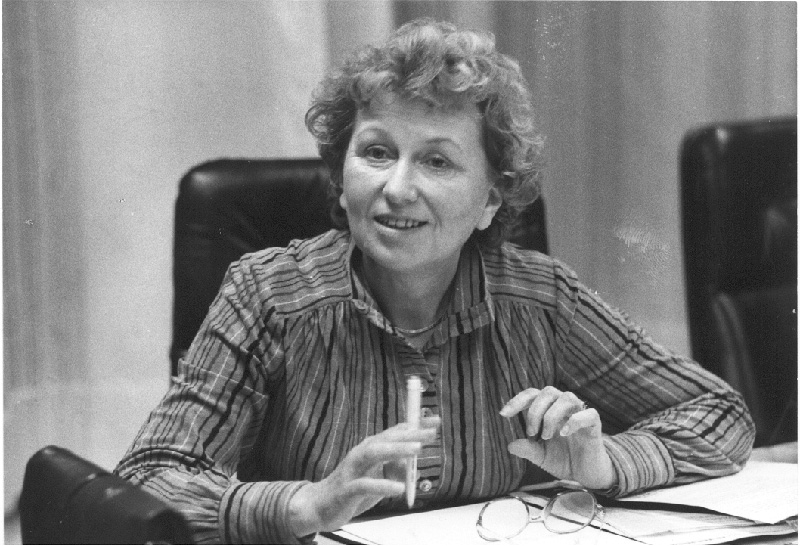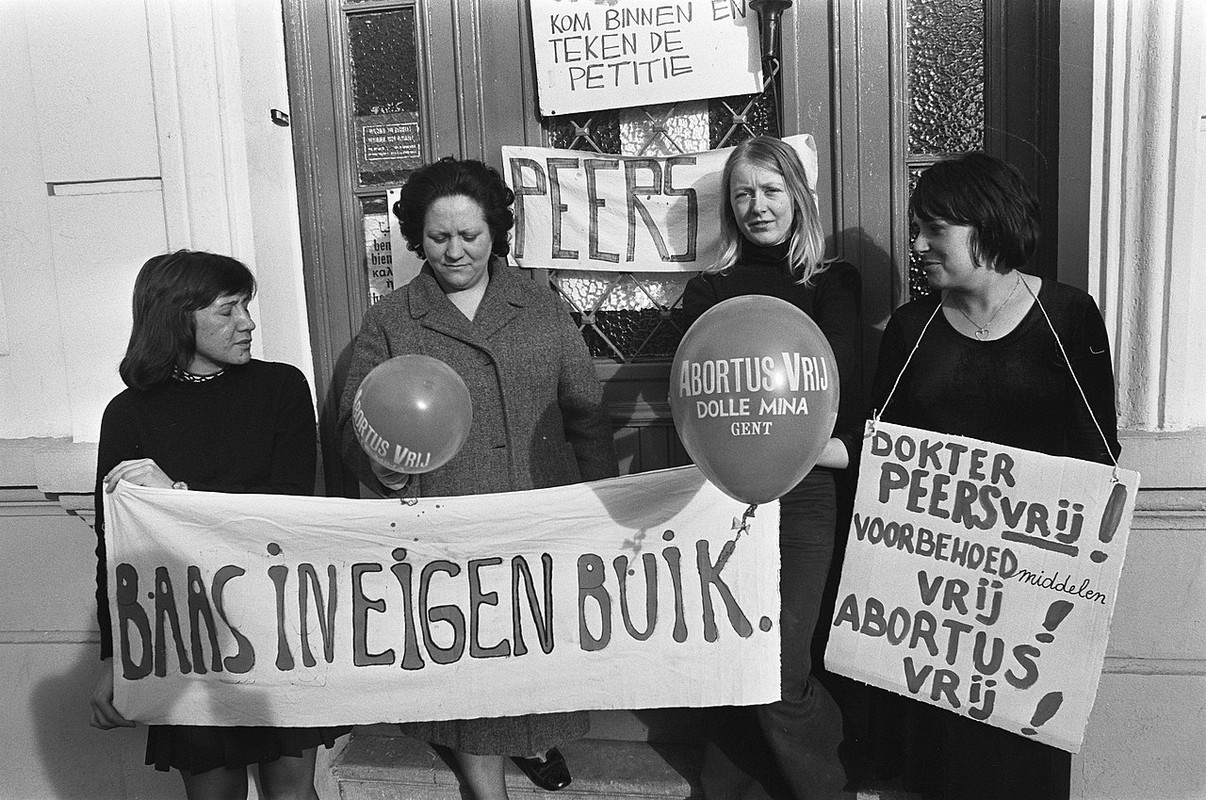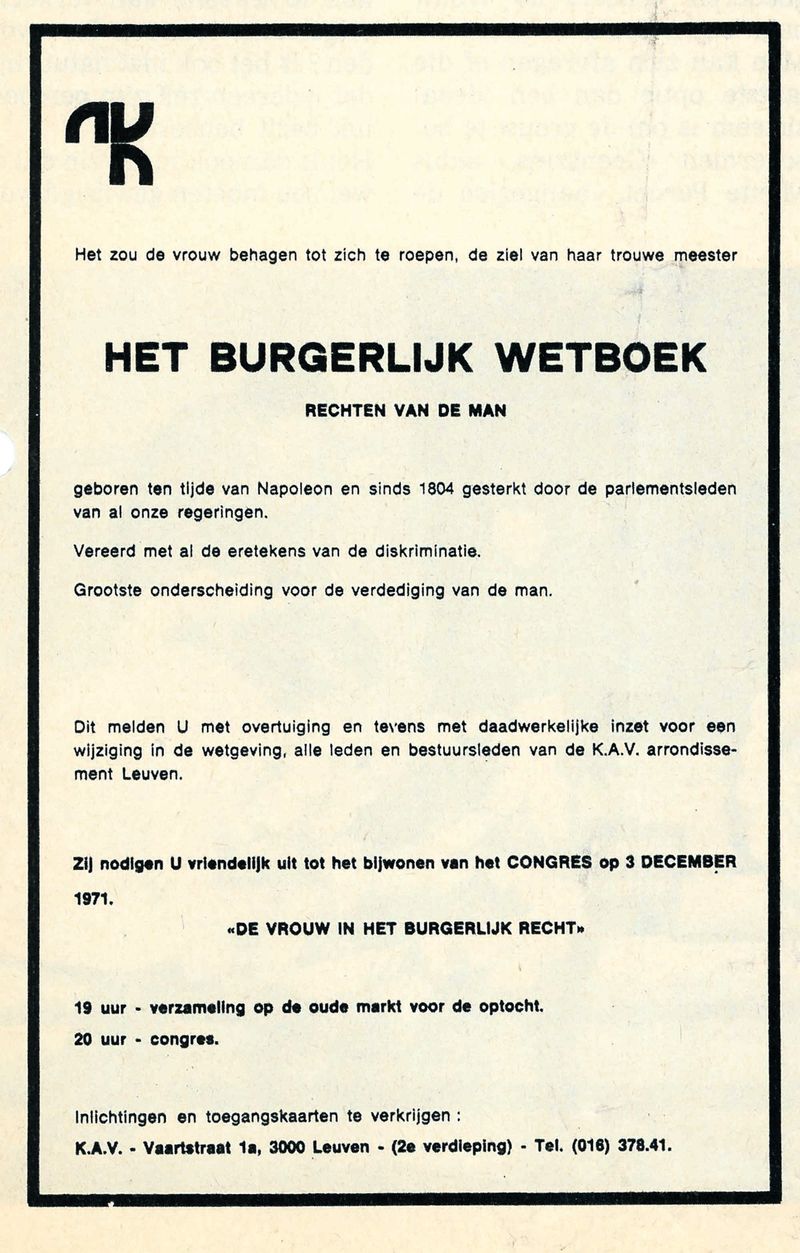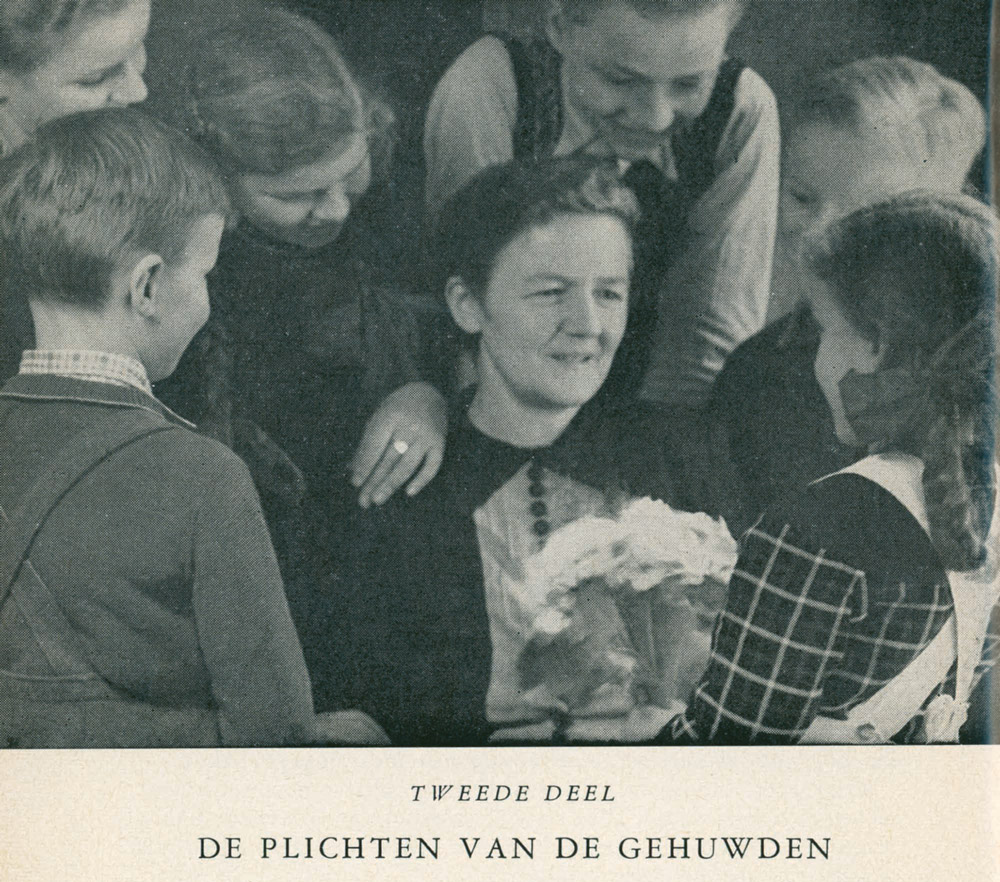The Pill
Sexual Revolution and Women’s Rights
The invention of reliable contraception, such as the pill, enabled people from the 1960s on to prevent pregnancy effectively. That not only heralded a sexual revolution, but also contributed towards the emancipation of women. The gynaecologist Ferdinand Peeters played an important role in the development of the pill.
Up to the 1960s there were few ways of preventing pregnancy. Couples resorted to periodic abstinencea method of contraception in which sexual intercourse is limited to the woman’s infertile period. or coitus interruptuswithdrawing the penis from the vagina before ejaculation. , two rather unreliable methods. Less common were the condom and the pessarya cap or ring that closes the cervix and excludes sperm. . Moreover, since 1922 advertising contraceptives and providing information on how to use them had been prohibited in Belgium. For many people everything connected with sex was taboo. The 1960s brought big changes. The invention of the pill allowed women to regulate their own fertility in a reliable way.
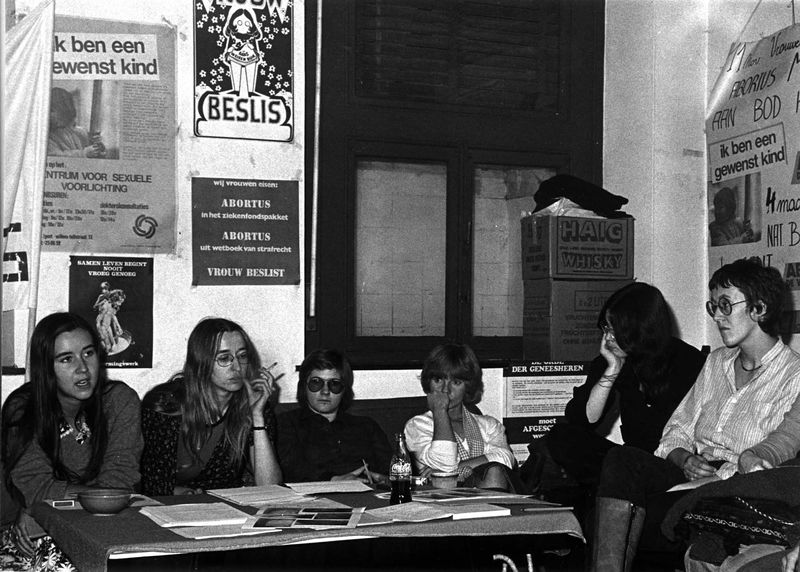
Ghent, Amsab-ISG, fo034724
The feminist movement Dolle Mina (Mad Mina), seen here in discussion in 1978, was active in the 1970s in Antwerp, Ghent, Leuven, Ostend and Brussels, around key figures such as Roos Proesmans (1943-2002) and Nadine Crappé (1935-1999).
Sexual Revolution and Women’s Rights
Being able to choose whether or not to have children, when and how many, made women more independent and increased their chances in the labour market. The pill was a crucial step in the sexual liberation of women and men. The fact that sex and pregnancy were no longer inextricably linked, changed the way people dealt with sexuality. In the 1960s that ‘sexual revolution’ was a significant and quite sudden social change. It formed part of a broader international evolution in which students, women, the LGBTQ+ community and people of colour questioned the established order and demanded rights. The legendary student revolt of May 1968 in Paris was one of the expressions of this.
In Flanders from the end of the 1960s both the traditional Catholic and Socialist women’s organisations and more radical feminist groups came up with new demands. They fought for equal pay, affordable childcare, more educational opportunities, a stronger presence in politics, changes in legislation on marriage, inheritance and parenthood, and so on.
Step by step from the 1970s on legislation brought change. Particularly new women’s organisations, such as Dolle Mina and the Women’s Consultative Committee (today Furia), put the free distribution of contraceptives and the right to abortion on the political agenda.
Focal points
Discover more on this topic
Non-fiction
Nog altijd baas in eigen buik? Een kritische doorlichting van de Belgische abortuswetgeving en – praktijk
VUBPress, 2013.
Zou men armoe lijden?: een eeuw kroostrijke gezinnen in Vlaanderen
WPG, 1990.
De engeltjesmakers: abortus toen het nog niet mocht
Van Halewyck, 2009.
Hoe dol was Dolle mina? Een geschiedenis van de Dolle Mina’s in Vlaanderen
Gent, 2006.
Abortus, het taboe nog niet voorbij?
Kramat, 2016.
Vlaanderen vrijt! 50 jaar seks in Vlaanderen
Steam, 2006.
De echte vader van de pil: het verhaal van de man die de vrouw bevrijdde
De Bezige Bij, 2014.
Clara
Heibrand, 2008. (Levensverhaal van Turnhoutse vroedvrouw Clara Dresselaers).
Fiction
De liefde van Annie Mols/Het nieuwe onkruid/Als het onkruid bloeit
De Arbeiderspers, 2005.
De Metsiers
Manteau, 1950.
Anovlar
Manteau, 1969. (Kortverhaal in de bundel Indian Summer).
Little black spiders
Davidsfonds, 2012. (13+)
Little Black Spiders
(2012)




